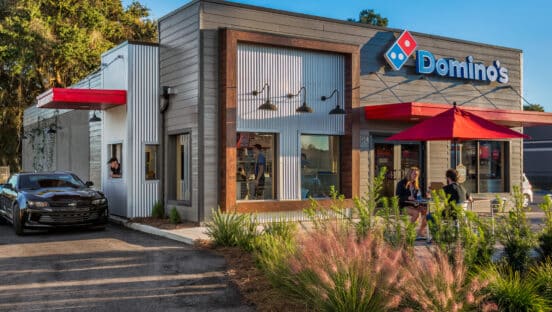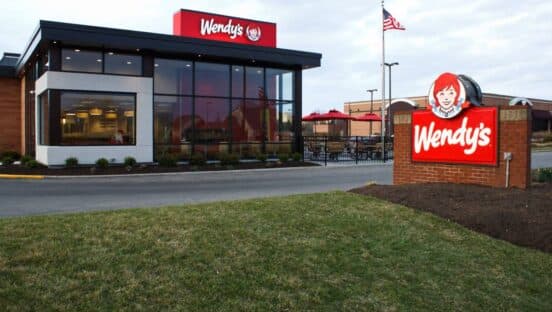As the novel coronavirus spread throughout the country, Americans flocked to grocery stores to stockpile food and other essential goods and ordered takeout to support local restaurants shuttered by the pandemic. As much of the nation self-quarantined in their homes, food sector workers continued to venture out, working to provide food for the public. As the economy took a downturn, food sector employers were some of the few not laying off workers, with some even raising wages and ramping up hiring.
The government also took steps to provide added benefits for these workers. In April, California Governor Gavin Newsom issued Executive Order N-51-20, requiring California employers in the food sector industry to provide certain workers affected by the pandemic with up to 80 hours of supplemental paid sick leave.
Which Employers Are Covered by The Executive Order?
In March 2020, Congress passed the federal Families First Coronavirus Response Act (FFCRA). The FFCRA requires employers with fewer than 500 employees to provide certain paid sick leave benefits to workers. Seeing a gap in the law’s coverage, California’s Executive Order was aimed at expanding the requirement to provide COVID-19-related paid sick leave to employers in the food sector industry with more than 500 employees. All of an employer’s workers in the United States count towards the California Order’s 500-employee threshold.
Also notable, workers do not need to qualify as “employees” under state or federal law to have an entitlement to supplemental paid sick leave, so long as the workers perform qualifying work for a covered entity. Specifically, if a private entity has more than 500 employees nationwide, then the supplemental paid sick leave requirements will apply to all California Food Sector Workers who perform work for or through that entity, regardless of whether they are deemed “employees” of the entity.
Which Workers Are Eligible for Supplemental Paid Sick Leave?
The Executive Order is meant to cover individuals who work in certain food-related industries or in the retail food supply chain, including pick-up, delivery, supply, packaging, retail, or food preparation. This includes a broad range of workers such as grocery workers, restaurant and fast-food workers, workers at warehouses where food is stored, and workers who pick-up or deliver food items.
To qualify as a “Food Sector Worker,” the individual must:
- Be exempt as an “Essential Critical Infrastructure Worker” from the requirements imposed by California’s shelter-at-home order;
- Leave their home to perform work for or through a covered employer; and
Satisfy any of the below criteria:
- Perform work in one of the following food-related industries: canning, freezing, and preserving; handling products after harvest; preparing agricultural products for market on the farm; or working in an agricultural occupation;
- Work for a covered employer that operates a food facility;
- Deliver food from a food facility for or through a covered employer.
What is the Scope of the Supplemental Paid Sick Leave Obligation?
Under the Executive Order, a food sector employer is only required to provide paid sick leave if the eligible worker is “unable to work” due to one of the following reasons:
- The worker is subject to a federal, state, or local quarantine or isolation order related to COVID-19;
- The worker is advised by a health care provider to self-quarantine or self-isolate due to concerns related to COVID-19; or
- The worker is prohibited from working by the employer due to health concerns related to the potential transmission of COVID-19.
The requirement to provide supplemental paid sick leave is only triggered if the employee asks to use the leave. Employers may not ask for a healthcare provider certification to substantiate the need for leave. However, according to FAQs issued by the California Department of Industrial Relations, it may be reasonable in certain instances to ask for documentation before paying the sick leave if the employer has information that indicates the worker is not requesting leave for a valid purpose.
The amount of supplemental paid leave to which a Food Sector Worker is entitled will depend on their full-time or part-time status. Each hour must be compensated at a rate equal to the highest of the Food Sector Worker’s regular rate of pay for their last pay period, the state minimum wage, or the local minimum wage. An employer’s maximum obligation is capped at $511/day and $5,110 in total.
The requirement to provide supplemental paid sick leave is in effect so long as any statewide stay-at-home order is in effect in California. Once it expires, a Food Sector Worker who was taking leave at the time may still take the full amount of leave to which they would have otherwise been entitled.
Employers also are required to provide notice of this sick leave entitlement. The Labor Commissioner advises employers to display this poster in a conspicuous place. If employees do not frequent a workplace, employers may send the notice through electronic means.
How Does Supplemental Paid Sick Leave Interact With Other Leave Benefits And Other Sick Leave Laws?
Many employers were already providing additional paid sick leave for workers beyond that required by law before the Executive Order was implemented. In that case, an employer may offset the leave required by the Executive Order, if the supplemental benefits already provided by the employer (1) are payable for the same reasons as those provided under the Executive Order, and (2) compensate the worker in an amount equal to or greater than the amount provided under the Executive Order.
Lastly, employers should be mindful of additional emergency sick leave ordinances that California localities have enacted to respond to the COVID-19 pandemic. The cities of San Francisco, San Jose, Oakland, Long Beach, as well as the city and county of Los Angeles all have enacted emergency sick leave orders, which must be evaluated in tandem with the Executive Order.
Emily Burkhardt Vicente is a partner with Hunton Andrews Kurth LLP in Los Angeles. She co-chairs the firm’s labor and employment group and has a national practice focusing on complex employment and wage and hour litigation. She may be reached at ebvicente@HuntonAK.com.
J. Drei Munar is an associate with Hunton Andrews Kurth LLP in San Francisco. She may be reached at JDreiMunar@hunton.com.













